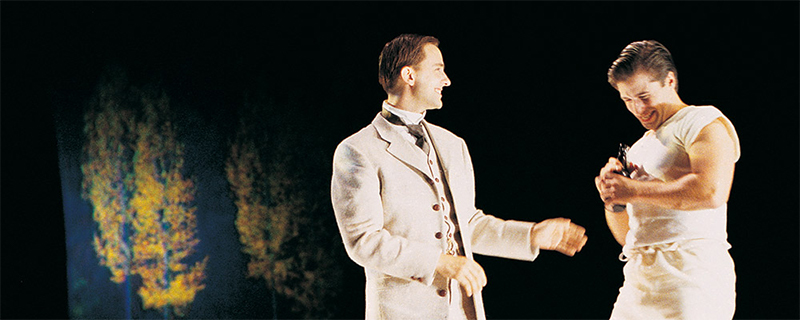Charles Newell on Directing Stoppard

This is the sixth piece written by Tom Stoppard that you’ve directed. What keeps bringing you back to his work?
It’s the challenge of a writer who’s so wickedly smart and so devilishly witty that keeps me coming back to Stoppard, and I embrace the work to find the heart in his text. I know it’s there; it’s always a thrill to hear audiences respond to his wit and intellect, but most importantly get completely emotionally caught up in it.
The Hard Problem contains so many fascinating and complicated philosophical, economic, and scientific theories that can take a lifetime to truly comprehend. But it’s not simply to get the audience to understand these—which I see as the “what” of the play—but how might our work as theatre artists reveal the human behavior—or the “how” of the play—which helps the audience connect to the play through their empathy for the individual characters. If they connect to that “how,” they’ll have a much greater ability to feel like they’re understanding the complicated “what.”
Audiences often leave Stoppard’s plays feeling really smart. But could they necessarily explain the concepts in the plays to someone else? As Hilary says in the play, “I understood it when she explained it, but not so I could explain it to anybody else.”
What are some of those things you’ve discovered through the time you’ve spent with The Hard Problem?
Court’s production of Proof in 2015 similarly put the main character Catherine on stage through the entirety of the play, even when she isn’t written into the script—according to playwright David Auburn, our production was unlike any he had seen before. This directorial decision allowed the audience to connect most viscerally to Catherine as she explored the emotions of the play. We’re hoping we have learned from Proof how to do something similar with The Hard Problem. If we can connect the audience to Hilary’s journey—through the same actress, Chaon Cross—we have the greatest opportunity of having the play land emotionally while still celebrating its dazzling intellect.
What has been your favorite Stoppard production, and why?
The one we’re working on now, of course! But the most helpful in preparing for The Hard Problem, and therefore the one I’ve been thinking about the most, is The Invention of Love. Guy Adkins and Paxton Whitehead each played poet A. E. Housman at different points in his life; these two actors together on stage made the experience joyous. In retrospect, the pleasure I found in discovering [Housman’s] poetry that I didn’t know at all, and even initially felt distant from, has given me optimism about The Hard Problem, which also has subjects that initially felt foreign to me but have become more familiar through a similar process of discovery.
Photo: Guy Adkins and Martin Yurik in Court’s production of Tom Stoppard’s The Invention of Love. (Michael Brosilow, 2000).